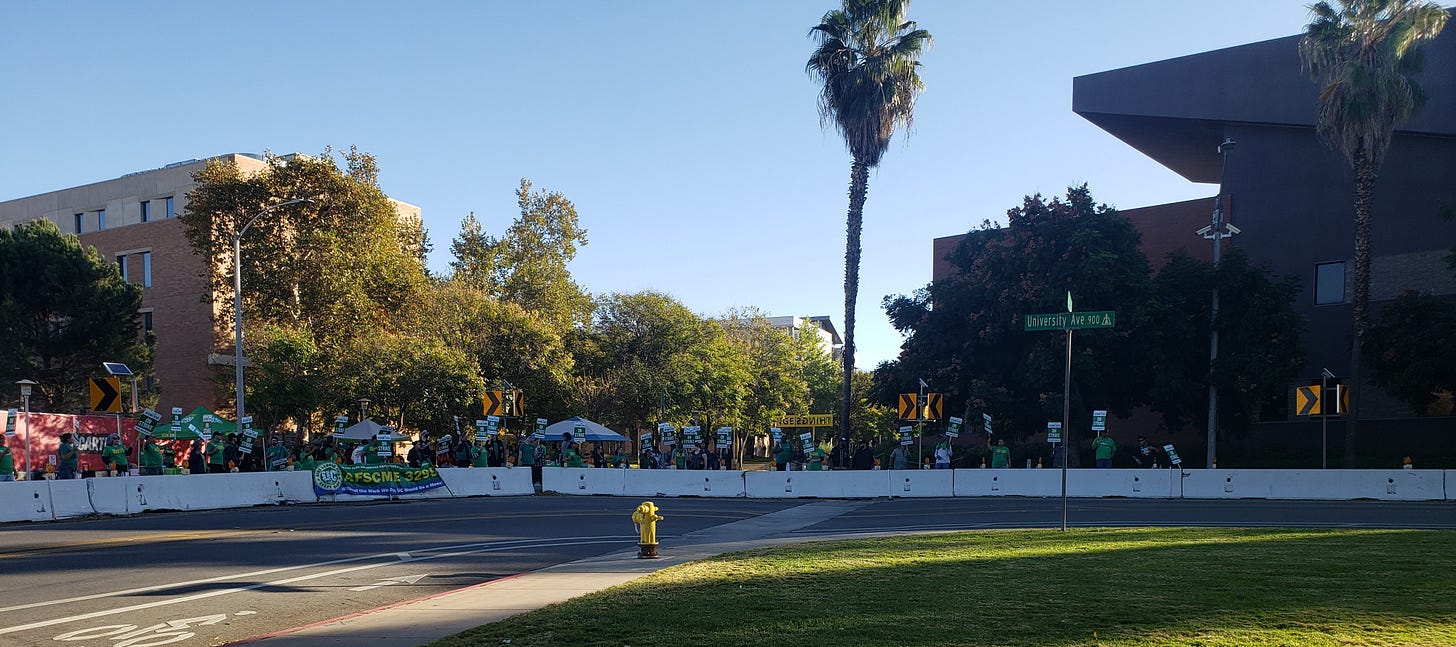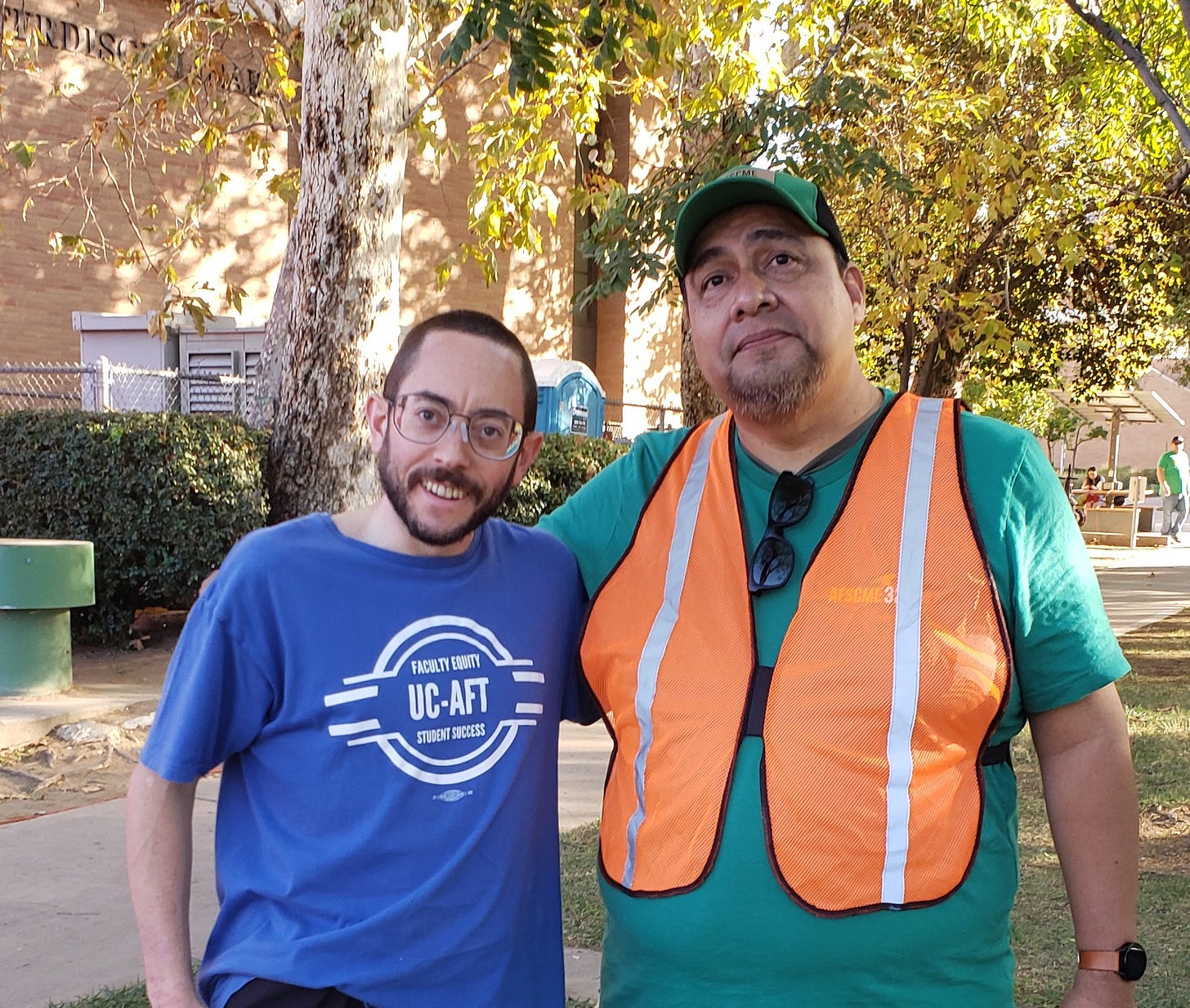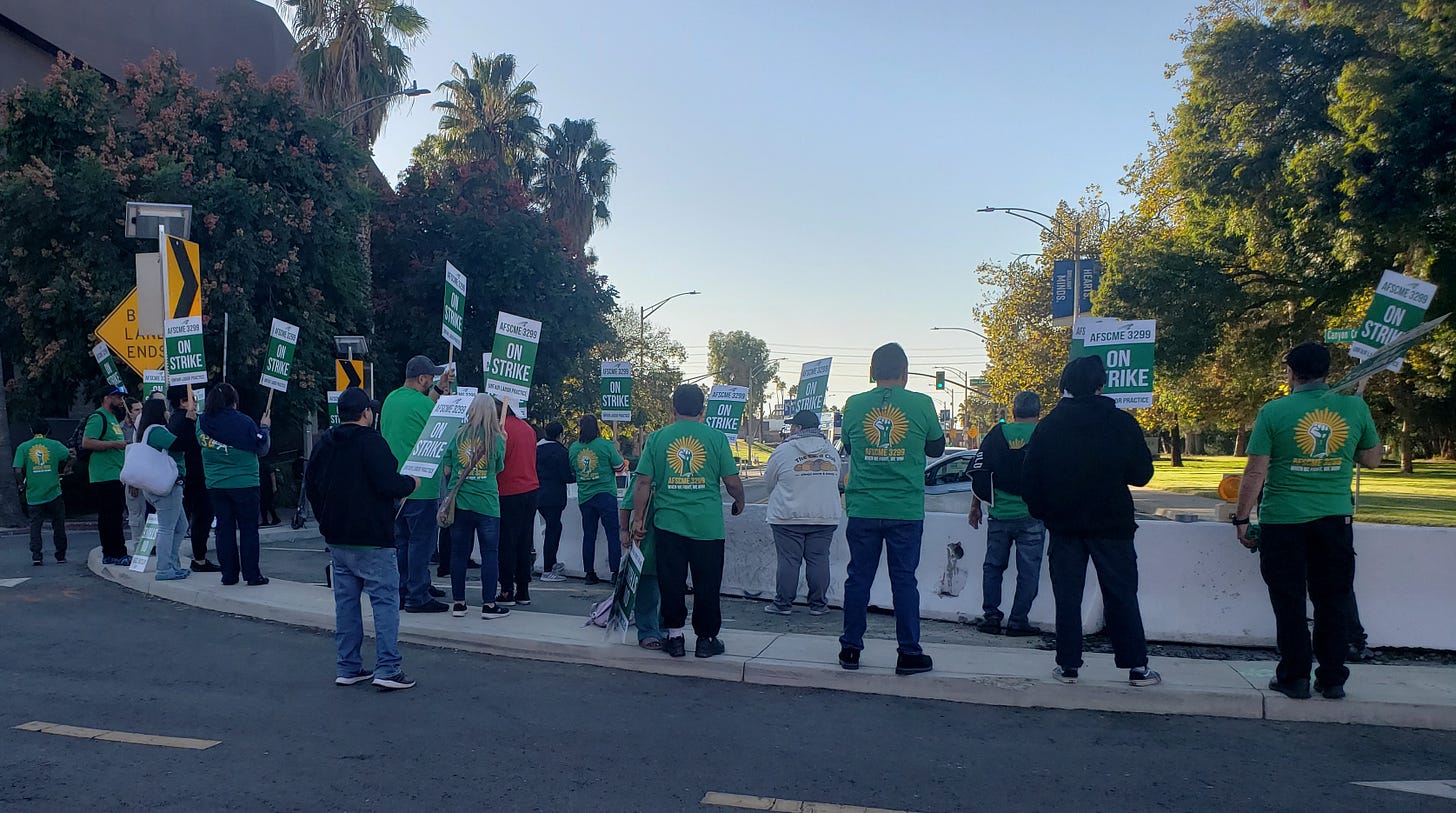Striking UC Workers Want Respect
“Whose university?” Striking UC service workers posed the question in unison on the edge of the University of California, Riverside, campus on Wednesday, November 20.
“Our university,” the strikers responded in turn.
Jesse Hernandez, a senior cook who works in dining services at UC Riverside, said he arrived at 5 a.m. to get the picket along University Avenue ready. Picketing commenced an hour later. When I interviewed him Wednesday afternoon, Hernandez said he would help with the cleanup before leaving and then repeating the 12-plus hour strike routine on Thursday.
“I’m not the one who’s actually making the sacrifice,” he said.
Hernandez, a member of both the executive board and bargaining team for his union, pointed to all the people sporting green-and-yellow union t-shirts and holding strike-related signs, and then he asked me an apropos question: “See all these workers?”
Hernandez, the acting organizer for his campus, estimated a hundred or more UC workers made it to University and West Campus Drive for picketing earlier in the day. They held down the picket in shifts, he said.
“They’re sacrificing pay,” Hernandez said. “But they believe in the big picture. The big picture is trying to get a contract.”
The union has been trying to negotiate with the university since January, he said, but the parties aren’t close to an agreement.
The two-day work stoppage in effect November 20-21 is a Unfair Labor Practice strike impacting all UC campuses and medical centers, including clinics. It comes after AFSCME 3299, the union representing UC service and patient care workers, filed a ULP charge with the California Public Employment Relations Board alleging the UC Regents have refused to bargain in good faith and that university higher-ups decided to unilaterally raise health insurance costs for workers.
“A lot of people can’t afford these increases,” Hernandez said.
The increases range from nine to 11 percent on premiums alone, while co-payments are increasing as much as 30 percent and prescription drug costs will be as much as 50 percent higher, according to Hernandez. Contrast that with the situation of UC Chancellors, who received raises last year, he pointed out. To cite one of the more glaring examples, UC San Diego Chancellor Pradeep Khosla received a half-a-million-dollar raise in 2023, bringing his annual pay to more than a million dollars.
The university gifts Chancellors with free housing too, but that largesse does not extend to UC service and patient care employees.
“People are insulted,” Hernandez said.
He said they need UC negotiators to come to the bargaining table with the information that his union reasonably requests—and with earnest proposals.
Members of his union voted to approve the two-day ULP strike, and Hernandez said it’s possible they will strike again if UC management continues to violate labor law and keeps bargaining in bad faith—and if AFSCME 3299 members democratically decide to authorize another work stoppage.
On Wednesday at the picket, the union had a table with a sign-up sheet for those interested in getting involved in the workers’ fight for a fair contract.
A number of UCR students assisted with the picketing and marching, Hernandez noted.
Professors who want to act in solidarity can ask AFSCME 3299 members to talk to students in their classes for five to 10 minutes about the ongoing struggle for an agreement with the Regents that really respects UC workers. Additionally, instructors can let students know they’re welcome to stop by the picket to ask workers why they’re making the sacrifice Hernandez alluded to.
“We are the hard labor for [the] University of California,” Hernandez said about those in his union. “We are the cooks. We are the people who feed the people in the dorms—students. We clean the toilets. We are senior custodians. We clean the restrooms in the dorms. … We have people in the clinics, in the health field. … We’re just asking for the University of California to give us respect.”




